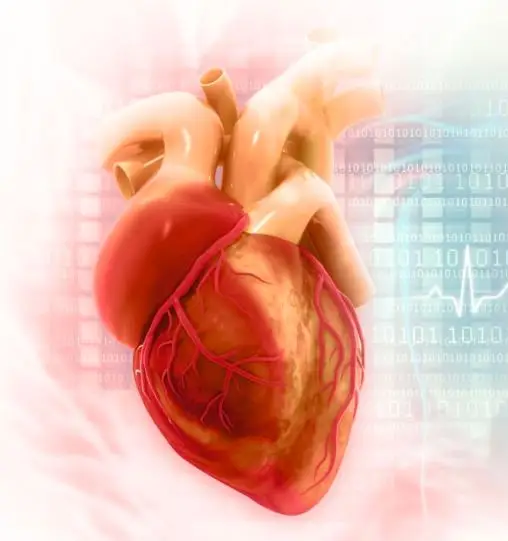What is heart attack?
A heart attack, also known as a myocardial infarction, occurs when the blood flow to a part of the heart muscle is blocked or severely reduced. This blockage deprives the heart muscle of oxygen, causing the affected tissue to become damaged or die. If not treated promptly, a heart attack can lead to serious health complications or death.
SYMPTOMS OF HEART ATTACK:
Common symptoms of a heart attack include:
- Chest Pain or Discomfort:
- Often described as pressure, tightness, squeezing, or aching in the center or left side of the chest. This pain may last for more than a few minutes or go away and come back.
- Upper Body Pain:
- Pain or discomfort in one or both arms, the back, neck, jaw, or stomach.
- Shortness of Breath:
- This may occur with or without chest discomfort.
- Other Symptoms:
- Cold sweat, nausea, vomiting, light-headedness, or sudden dizziness, back or jaw pain, and fatigue.
RISK FACTORS FOR HEART ATTACK:
Several risk factors can increase the likelihood of a heart attack (myocardial infarction). These risk factors can be categorized into modifiable and non-modifiable types.
Modifiable Risk Factors
1. High blood pressure (hypertension).
High blood pressure can damage arteries and increase the risk of atherosclerosis, which can cause heart attacks.
2. High cholesterol:
High levels of low-density lipoprotein (LDL), also known as “bad” cholesterol, can cause plaque formation in arteries, leading to blockages.
3. Smoking increases the risk of heart attack by damaging artery linings and lowering blood oxygen levels.
4. Diabetes: Uncontrolled diabetes can damage blood vessels and raise the risk of atherosclerosis.
5. Obesity: Excess body weight, especially around the midsection, can lead to high blood pressure, high cholesterol, and diabetes, all risk factors for heart attacks.
6. Physical inactivity:
Lack of exercise can increase the risk of obesity, high blood pressure, and cholesterol.
7. Unhealthy Diet: o High saturated fat, trans fat, cholesterol, sodium, and sugar intake might raise the risk of heart disease.
8. Excessive alcohol use can lead to higher blood pressure and increased risk of heart disease.
9. Stress: Chronic stress can harm arteries and exacerbate risk factors like high blood pressure.
10. Obstructive sleep apnea, characterized by frequent pauses in breathing during sleep, can cause high blood pressure and heart disease.
Non-modifiable Risk Factors
1. Heart attack risk increases with age, especially for men over 45 and women over 55.
2. Gender: Men have a higher risk of heart attacks compared to pre-menopausal women. However, following menopause, the risk for women increases and can match that of men.
3. Family History: A family history of heart disease or heart attacks, particularly if a parent or sibling had a heart attack at a young age, raises your risk.
4. Personal History: A history of heart disease or past heart attacks raises the risk of future attacks.
Emerging Risk Factor
1. Chronic inflammation may contribute to atherosclerosis and heart attacks.
2. Autoimmune diseases, including rheumatoid arthritis and lupus, can raise the risk of heart disease.
3. Mental Health Disorders: – Depression, anxiety, and other mental health issues may raise the risk of heart disease.
Understanding and treating these risk factors can dramatically minimize the chances of having a heart attack.
PREVENTION OF HEART ATTACK
To prevent a heart attack, consider lifestyle changes.
1. Healthy Diet:
Eat a balanced diet with lots of fruits, vegetables, whole grains, lean proteins, and healthy fats (e.g., fish, nuts, olive oil).
Reduce sodium consumption to manage blood pressure.
Limit sugary drinks, snacks, and processed/high-fat foods.
2. Regular Exercise: – Physical Activity: Aim for at least 150 minutes of moderate-intensity aerobic activity or 75 minutes of vigorous-intensity activity per week, with muscle-strengthening activities on two or more days per week.
3. Maintain a Healthy Weight: Weight Management: Achieve and sustain a healthy weight through a balanced diet and frequent exercise. Obesity poses a serious risk.
4. Avoid smoking and limit alcohol consumption.
Medical Management
1. Monitor blood pressure.
Regular check-ups with a healthcare provider can help manage high blood pressure.
2. Maintain Healthy Cholesterol Levels: – Regularly check your cholesterol levels. Medications and lifestyle modifications can help keep cholesterol levels under control.
3. Diabetes Management: Controlling blood sugar levels is vital for lowering the risk of heart disease.
4. Regular Health Screenings: Routine check-ups with your healthcare practitioner can help discover and treat risk factors early.
Stress Management
Reduce stress using stress management techniques. Deep breathing, meditation, and yoga are all effective relaxation strategies. Regular physical activity also helps to alleviate stress.
Medication and Medical Interventions
1. Comply with prescribed treatments:
Take prescription drugs for high blood pressure, cholesterol, or diabetes as indicated.
2. Medical Procedures: – Consult your doctor. In some circumstances, operations such as angioplasty or bypass surgery may be required to treat serious cardiac disease.
Education and Awareness.
1. Recognize the signs:
Recognize symptoms. Be alert of the signs of a heart attack, which include chest pain, shortness of breath, and discomfort in the arms, back, neck, or jaw. If you have these symptoms, seek medical assistance immediately.
2. Stay Informed about heart health education:
Personalized Plan
1. Individual Risk Assessment and Personalized Advice: Work with your doctor to identify your particular risk factors and create a personalized plan to lower your chance of a heart attack.
By implementing these measures into your everyday routine, you can greatly reduce your risk of having a heart attack and improve your overall cardiovascular health.




